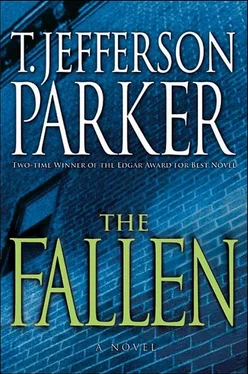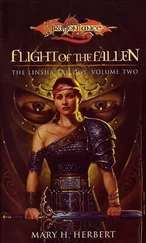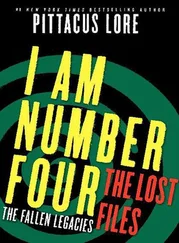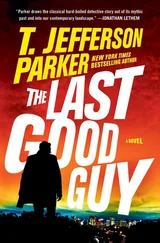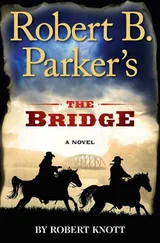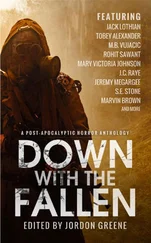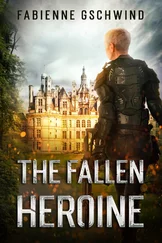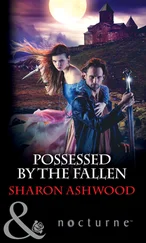At five that afternoon we were finishing up with the city-run community centers, all of which feature bulletin boards for local, allegedly nonprofit announcements. Among the flyers for natural-childbirth classes, baldness therapies, free kittens, gem and mineral shows, herbal weight-loss programs, haiku workshops, and nonmedical treatments for sweaty palms and poor eyesight, we tacked our “Wanted for Questioning” flyers of Hummer Man. He looked brusque and lowbrow in the optimistic mix of self-improvement schemes, educational programs, and free pets.
By the time we rolled back into headquarters it was almost dark and still seventy degrees. We had ten flyers left. I put a few of them in my briefcase and gave the rest to McKenzie. She began scanning one into her computer to post it on our PD Web site and send it out as a jpeg to some of the watchdog Web sites that are helpful to law enforcement.
Chet Fellowes eased into the Homicide room, shoulders sloped and arms long. He put both hands on my desk, leaned over, and turned to face me.
“We’re set for Eden Heights at midnight,” he said. “You found it, you can come along for the fun if you want.”
“Cortez, too?”
“Cortez, too. And wear your vests. People like Chupa Junior go well with body armor.”
“You talk to Villas?” I asked.
“Of course I talked to Villas.”
“Then we’re in.”
“You can ride in one of the tactical trucks with my people,” said Fellowes. “We’ll have two. I looked over the location yesterday. We’ll have some men waiting out back by that pool house. That’s going to be the emergency exit when Chupa spots us driving up.”
“All right. Thank you, sir.”
He leaned closer and whispered. “The video that Garrett had, with our guys and the girls on it. It hasn’t gotten out, you know? You’ve kept it in-house, haven’t you?”
“I turned it over to Professional Standards,” I said.
“But you made a copy, right?”
“No, sir. Why would I?”
At times like this I’m glad that people can’t see the lies tumbling out of my mouth like I can see theirs. But I always wonder if, maybe in some other way, they can.
“There’s going to be a shitstorm when the VIPs get popped at Eden Heights tonight,” said Fellowes. “Cops, pols, fire, businessmen — everybody gets pulled into the net. Bad for us. Bad for the city. Can you handle that?”
“I can handle that.”
“Because you’re not like some people. I mean, you don’t want our city to look bad, do you?”
“I like it the way it is.”
“Meet us down by the sally port at midnight.”
He slapped a heavy hand on my shoulder and went to McKenzie’s desk.
McKenzie left the station a few minutes earlier than usual. She had a dinner date with Hollis Harris and needed to have it wrapped in time to get her back here by twelve for our raid on Eden Heights. I smiled and was pleased that it would take McKenzie and Hollis four or five hours to have dinner. McKenzie read my thoughts and looked away.
I thought of all the endless dinners that Gina and I had made together from magazine recipes in our home, spacing the courses between lovemaking and letting the cooking and eating become part of the love, or the love become part of the cooking and eating — a dizzying series of desires we built and rebuilt together with the windows open to the breeze and the TV turned down low and the answering machine taking all calls and me praying my pager or cell wouldn’t go off and take me away to deal with criminals.
McKenzie had looked somewhat tired but happy ever since she first went out with Harris. Her complexion and attitude seemed less severe. She had told me that he had the fastest mind she’d ever known and was coming along nicely as a recreational handgunner. He had shown an interest in sporting clays, which McKenzie had never shot. She said they were planning to try clays together and wondered if Gina and I would like to do it, too. I’d told her that would be great — I’d get with Gina and see when she was free. I found it disappointing that after five years of marriage I was lying about my wife, while after one week of dating, McKenzie was able to make plans with and speak honestly about her boyfriend.
I stayed late at headquarters, then stopped by Higher Grounds on my way home. The first two employees I talked to were pretty sure they had worked that night, but neither remembered seeing the man on my poster. The second two were pretty sure they had not worked that night, and neither of them remembered seeing him either.
Then an extremely pale girl with lucid green eyes took one look at the flyer and lifted her brilliant gaze to me.
“I waited on him,” she said. Her badge said “Miranda.” Her hair was white. “That’s not a great sketch, but I recognize the guy. He came in about eight-thirty. I remember thinking his sunglasses were overkill cool, because it was dark and rainy.”
“Tell me what happened,” I said.
“He ordered a medium decaf with cream,” said Miranda. “I remember thinking that was a good thing for him to order. He looked nervous.”
“How could you tell that?”
“His hands were shaking.”
“Had you seen him before?” I asked.
“Two or three times. But... he was different that night.”
“Different how?”
“I’m not sure. I can’t say exactly how.”
“Did he say anything to you, besides ordering the coffee?”
“Not one thing,” said Miranda. “He looked off to the side when he paid, like he didn’t want to see or be seen. He paid with two dollars. That’s when I saw his hands shaking. He left me the forty cents for a tip.”
“What kind of voice did he have?”
“I don’t remember. I’m visual, not aural.”
“Did he ever take off the sunglasses?”
“No.”
“Would you recognize him if he came in again?”
She smiled and shook her head as if dealing with a child. “I’m an art student. I’ve got twenty-ten vision. There’s only one thing I can really do well, and that’s see . I’d recognize him.”
I wrote my cell number on the back of five business cards and gave one to her.
“I’ll keep an eye out,” she said. “Two, actually.”
Then I handed the others to the employees one at a time.
“Cool.”
“Cool.”
“Cool.”
“Cool.”
“I saw you on TV,” Miranda said, studying me with her perfect green eyes. “I’m glad you lived.”
“Thank you. That’s nice of you to say.”
“It made me thank God for my life.”
“Me, too. Can you think of anything else about this man you saw?”
“No. I’m sorry I can’t tell you how he was different. It’s not that I didn’t see him clearly, it’s just... I’m sorry. He was just not the same as when I’d seen him before.”
A pale fog was drifting through the valleys surrounding Eden Heights. The last of the streetlights cast its muted round glow as we headed up into the hills.
I thought of Garrett Asplundh’s favorite poem, as recited by Stella:
The road was a ribbon of moonlight over the purple moor ...
I pictured Hummer Man again and hoped we might buy some more luck with our “Wanted” poster. What Miranda had told me was apt, interesting, and a little chilling. But it wouldn’t do me a lot of good unless he went back to Higher Grounds when she was there or until I could match a suspect’s DNA with that in the saliva from the lid that Sanji Moussaraf had given me, inadmissable as that might be.
It was twelve forty-five by the time we left headquarters in the tactical SUV, a black-and-white Suburban heavy with lights and bristling with antennae. It’s an impressive vehicle. Eight of us were crammed inside: Fellowes and two detectives, all in street clothes, and three uniforms. Mincher had been plucked from duty in traffic, no doubt by Fellowes, and he sat quietly at the wheel, devoted to the road, saying nothing to me or McKenzie.
Читать дальше
Конец ознакомительного отрывка
Купить книгу
